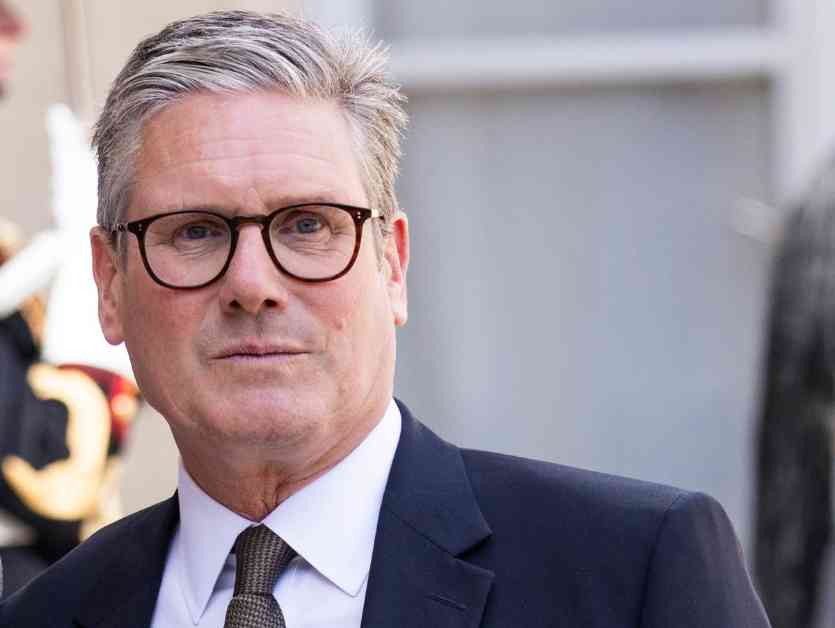Keir Starmer Faces Backlash Over Removal of Thatcher Portrait
Sir Keir Starmer, the Prime Minister of the United Kingdom, has come under fire for his decision to remove a £100,000 portrait of former Prime Minister Margaret Thatcher from No 10 Downing Street. The controversial move has sparked criticism from Conservative MPs, who have labeled it as “petty” and “vindictive.” Tory MP Greg Smith accused Starmer of showing disrespect towards historical figures, while others suggested that the decision reflects Starmer’s insecurity when compared to Thatcher’s achievements.
The removal of the portrait has ignited a debate about the role of historical figures in modern politics and the importance of respecting the legacy of past leaders. While some have praised Starmer for taking a stand against Thatcher’s controversial policies, others have criticized him for erasing an important part of British history. The portrait controversy has highlighted the ongoing tensions between different political factions in the UK and raised questions about the role of symbolism in political decision-making.
PM Considers Smoking Ban in Outdoor Spaces
In addition to the portrait controversy, the Prime Minister has hinted at a potential smoking ban in outdoor spaces such as pub gardens. Speaking in Paris, he confirmed that changes to smoking laws are under consideration, with more details expected to be revealed soon. The proposed smoking ban has sparked concerns among hospitality groups, who fear that it could have negative impacts on the sector.
The potential new Tobacco and Vapes Bill has also caused tensions within the cabinet, with Business Department officials warning that the move could create financial challenges for the industry. The debate over the smoking ban reflects broader discussions about public health and the government’s role in regulating harmful substances. As the government considers implementing new restrictions on smoking, it faces pressure from various stakeholders to balance public health concerns with economic considerations.
Union Urges Starmer to Prioritize Ban on Zero-Hours Contracts
Keir Starmer is facing mounting pressure to resist diluting a planned ban on exploitative zero-hours contracts, despite warnings from business leaders about potential economic damage. The Trades Union Congress (TUC) has urged the Prime Minister to prioritize the ban, citing new evidence of financial hardship among millions of workers in insecure employment. Labour’s proposed overhaul of workers’ rights has led to tensions between the government and businesses, with Deputy Prime Minister Angela Rayner and Business Secretary Jonathan Reynolds assuring employers of a phased approach to the reforms.
Chancellor Rachel Reeves has emphasized a commitment to “co-design” policies with businesses, aiming for growth while improving workers’ conditions. However, TUC General Secretary Paul Nowak has insisted that banning zero-hours contracts is crucial to improving employment standards and ensuring fair treatment for workers. The debate over zero-hours contracts highlights the ongoing challenges of balancing the interests of workers and businesses in a rapidly changing economy.
In conclusion, the controversies surrounding the removal of the Thatcher portrait and the proposed smoking ban reflect the complex and often contentious nature of political decision-making. As the government grapples with these issues, it must navigate competing interests and priorities to ensure that its policies promote the well-being of all citizens while supporting economic growth. The debates over historical symbolism, public health, and workers’ rights are likely to continue shaping the political landscape in the UK for the foreseeable future.












